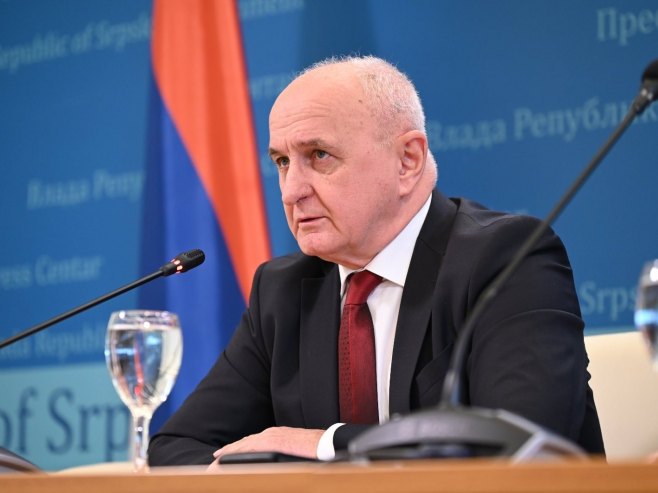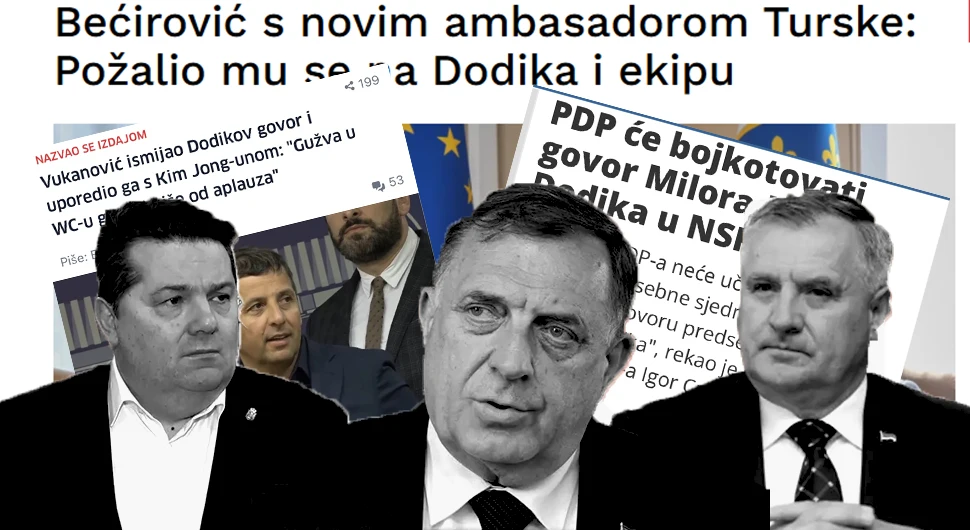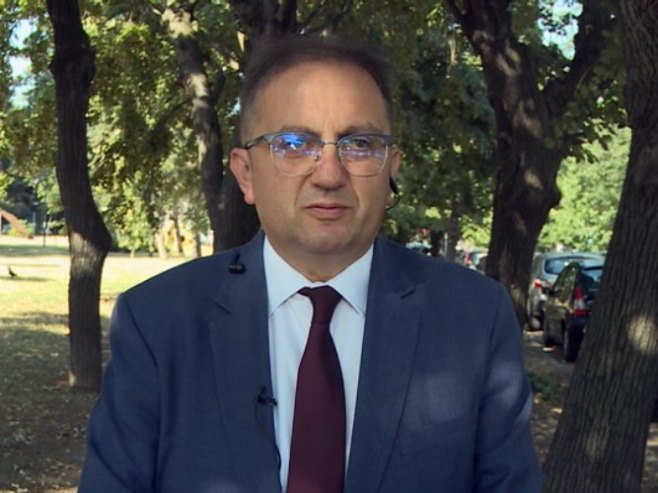I believe that the Balkans will ignite when other conflicts begin to fade. When one battleground ends, another begins. It sounds cynical, but that’s the reality. We know the historical relationship of the West towards the Balkans.
This was stated in an interview with Banjaluka.net by Mikhail Zvinchuk, better known as Ribar, one of the leading military analysts. He is a reserve captain of the Armed Forces of the Russian Federation, a recipient of three state awards of Russia, and best known through the Telegram channel Ribar, which is followed by 1.2 million people.
Thanks to his knowledge in informational and analytical work, Zvinchuk’s posts have attracted significant attention from around 15.5 million people across all networks, in 23 languages.
In the past two months, he has visited Banja Luka twice, and we used his current visit to speak with Zvinchuk about the most current topics – the situation on the battlefield in Ukraine, the position of the Balkans, and the further development of global trends.
“I believe that when things start to calm down in Ukraine, other hotspots will gradually ignite. These include the Balkans, the Baltic countries, the Scandinavian countries, and the Asia-Pacific region. It all depends on how the plans of the orchestrators will be realized,” Zvinchuk said.

INTERVIEW BY: Aleksandar Stojanović/ BanjaLuka.net
Russia conducted military exercises near the US border. Does this mean that the conflict is gaining a broader scope? How can we interpret these latest developments?
Zvinchuk: We can only say that the stakes are being raised. Conducting such exercises near US territory is merely a way of raising our stakes, to show that we are present and can respond. Militarily, it means nothing. We understand that, despite the strength and power of these ships, they cannot fight against an entire country. But we can influence the local population of the US, sending a message: “The bad Russian guys are here, and we’ve arrived.” So, we can say that it does not affect the military perspective as much as it affects the mind, the people, and their consciousness.
Regarding the delivery of weapons to groups fighting against the US, I think we will soon see the results of those deliveries. The most obvious example is arming the armies in American countries fighting against France and the Yemeni Houthis.
How do you comment on the fact that Western powers are providing weapons to Ukraine and have allowed attacks on Russian territory? Can we talk about Ukraine as the focal point of the Russia-US conflict with their allies?
Zvinchuk: Of course. Ukraine is just a testing ground for the delivery and testing of new weapons, technologies, and economic measures. It is also a place where new political and media technologies are being tested. All parties involved in this conflict on Ukrainian territory are trying out and researching how these components work.
For example, if we take artificial intelligence, the West has launched a project called “White Stork.” What is the essence? Former Google owners are investing money in this project. They have united all the organizations that delivered drones to Ukraine, networked them, and connected them with artificial intelligence, and now all drones use artificial intelligence, attempting to perform much better in the field. This is a huge project and requires a lot of money from investors. Without a project like Ukraine, there would be no testing ground for such research and testing. Inflicting certain damage on Russia is just a bonus for them.
The goal is profit! They profit, not only economically but also politically and gain a reputation. Great Britain and the US do not bear the costs of the war. Europe will suffer the most. But Europe is working in the interests of the West. We are now talking about a global conflict, but in the end, it all boils down to earning certain points.
Can we say that history is repeating itself? Because in World War II, the biggest victim was Europe, including the Soviet Union as part of Europe.
Zvinchuk: We can, in a certain sense, talk about that. If we speak from the standpoint of globalism, the elites in all countries are the same. They, of course, have certain costs, but in the end, they are the winners. Can we say that Great Britain and the US were affected during World War II? That question is my answer.
The Balkans have always been a “powder keg,” a tricky terrain. Can we now say that the Balkans are successfully avoiding greater involvement? How do you see the response of, for example, Serbia and Republika Srpska on one side, and Croatia, Greece, Montenegro on the other?
I think the Balkans will ignite when other conflicts begin to fade. Because when one battleground ends, another begins. It sounds cynical, but that’s the reality. We know the historical relationship of the West towards the Balkans.
I was here a month and a half ago, I gave a lecture and told your institution representatives that you are now confident in your relationship with history, that nothing will change, that your children will think like you, and that they will never speak about, for example, Srebrenica differently than you do. But no one can guarantee that after one generation, the next will not change their opinion. The West works this way.
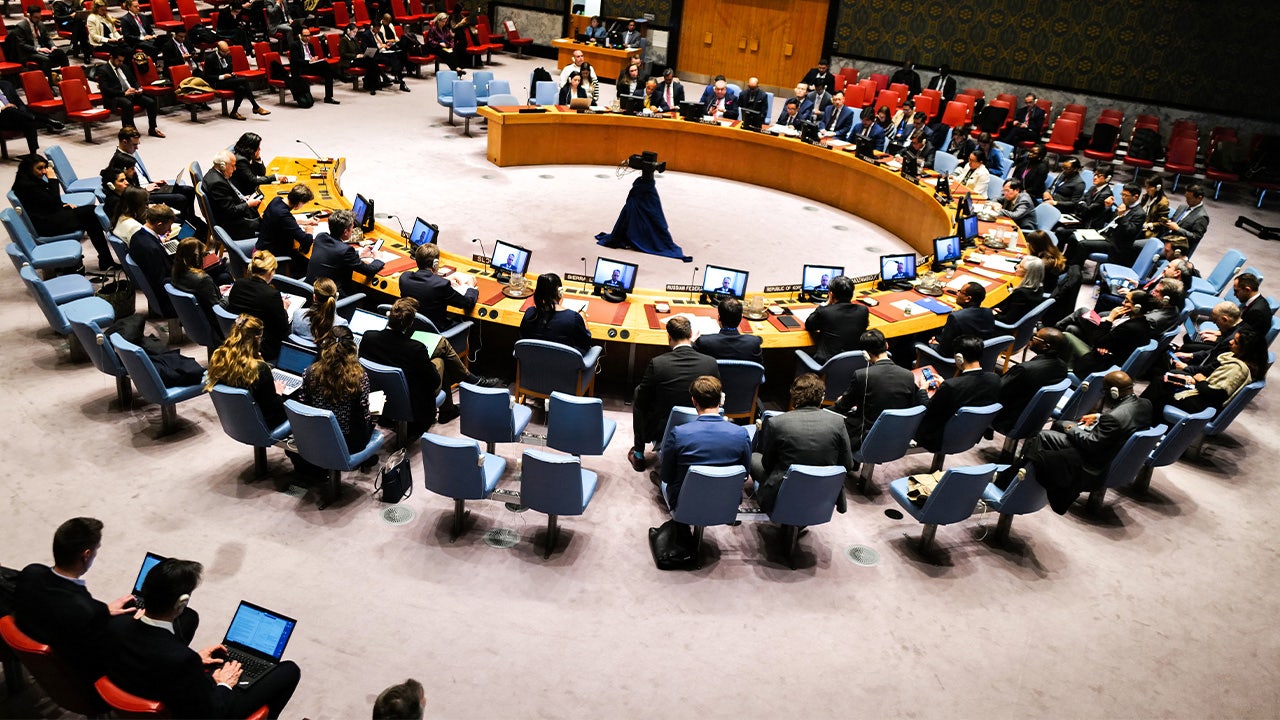
Unfortunately, some institution representatives here tried to convince me that this would never happen. But look, we are now in a country that was part of a state that was broken up 30 years ago. Regarding the conflict, I think that when things calm down in Ukraine, other hotspots will gradually ignite. These include the Balkans, the Baltic countries, the Scandinavian countries, and the Asia-Pacific region. It all depends on how the orchestrators’ plans will be realized.
When I first came here, there was no decision by the UN General Assembly. Now that has happened. Now there is talk about Republika Srpska declaring independence. That is a correct and good course. I am convinced that many countries will support that direction. However, I also believe that many countries will see it as a “casus belli” (cause for war).
Is it the right moment for the independence of Republika Srpska?
Zvinchuk: I believe there is no right or wrong time. You will have problems anyway. If you do something, it will be used as a reason for something. But when choosing whether to do something or not, I think it is better to do something. I have often spoken about Republika Srpska as a modern Sparta. Because you are constantly in battle. So why stop?
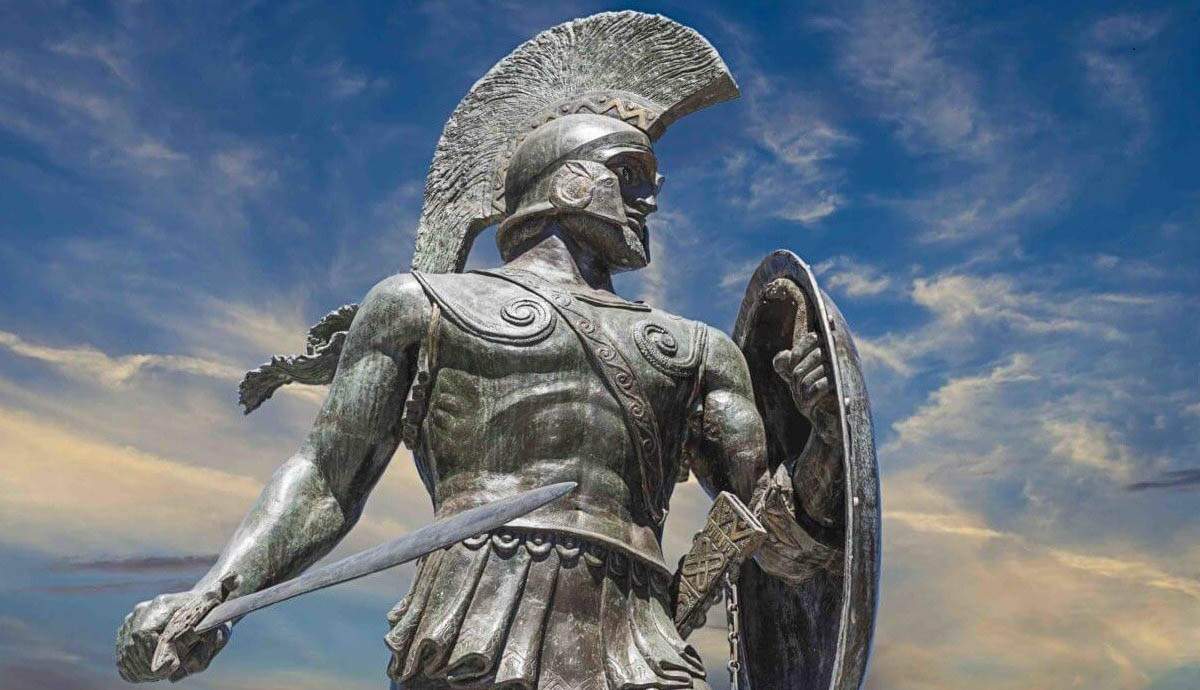
But Sparta fell.
Zvinchuk: But it became an example worldwide, an eternal example of courage and strength. We all know about the 300 Spartans. From the standpoint of faith, there is no greater treasure than to die in a just battle. That does not mean Republika Srpska should become a sacrificial lamb. I just want to say that I see Serbs as a people who always choose the right and just path. And we can only look at that with admiration.
The entire Serb people can be seen as Spartans. But Serbs paid a very high price during the 20th century. My question is whether there are enough of us and whether Serbs can afford another great sacrifice?
Zvinchuk: I think we (Russia, ed.) will not allow a repetition of the history that happened in the 1990s. Back then, the geopolitical circumstances were different. I am quite sure that if a conflict between Serbs and the West occurs now, a huge number of people, volunteers, and those who consider Serbs brothers, will support them.
Speaking cynically, I already mentioned Ukraine as a testing ground, I think Republika Srpska and Serbia could become a testing ground for examining moral spirit, values, and the clash of civilizations – the just and the heretical.
How important is the Orthodox component? Does globalism seek to extinguish Orthodoxy?
Zvinchuk: Globalists and old aristocratic families of the West have always tried to destroy Orthodoxy. When we look at Turkey… It lost its sovereignty the moment English ships appeared there. The Turks were used only as a hammer to hit Christians. That is just a tool for bloodshed. It is a crude tool for killing Orthodox Christians. Orthodoxy allows us to preserve correct values. And what is a man without values? Biological trash, and such trash can be turned into something that has no gender or identity. We could say it is an ideal rat for research.
Source: BanjaLuka.net

